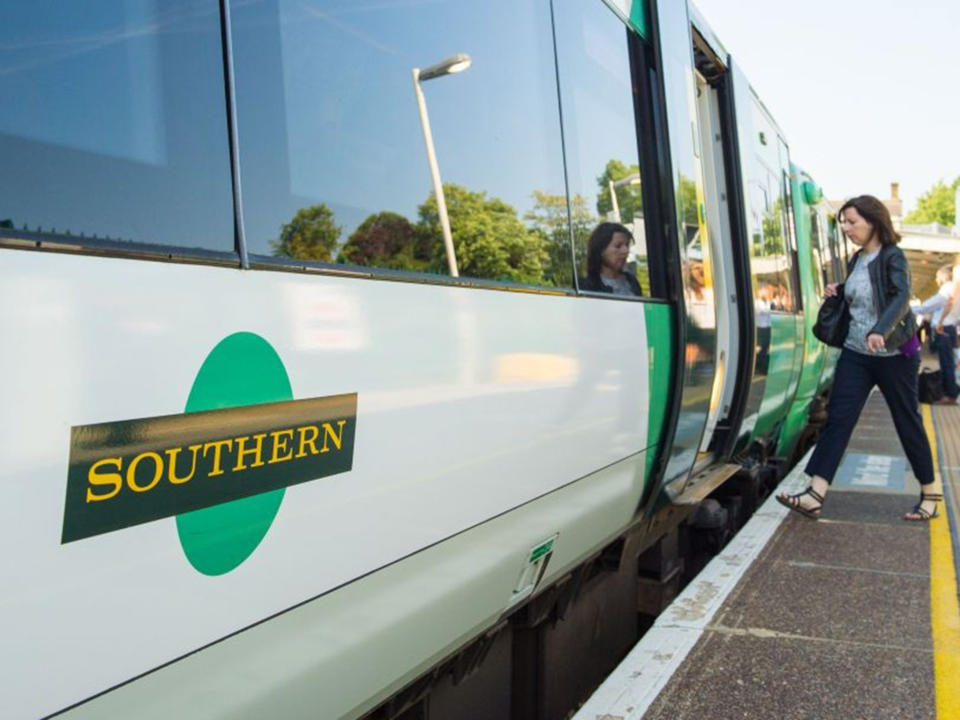Jeremy Corbyn and I don’t agree about much – except nationalisation of the railways

I’ve spent a lot of time on trains this week, and one of the highlights was being asked to pay £1.95 for a cup of hot water on South Western Railway – because I had boarded after 10am.
That’s a minor inconvenience compared to the discomfort suffered by passengers whose lives have been blighted by a long-running dispute affecting Southern, one of the UK’s busiest rail services.
For 18 months, children have not been collected from school, sick people have missed hospital appointments, office workers have no idea whether they will make morning meetings. Hours and hours of waste in terms of productivity and at a considerable cost to family life.
Night after night, on local news, weary commuters have described how it takes up to two hours longer to get to and from work in London and the South-east from Sussex and Kent. They have no idea when trains might arrive, on what platform or what circuitous route their journey might take.
The bitter battle to introduce driver-only trains on Southern Rail has led to walkouts and eventually spread to other parts of the country as union members working for five other operators came out in sympathy. The Government (according to Transport Secretary Chris Grayling – “we put passengers at the heart of everything we do”) – sat back and did nothing as offer after offer was rejected by Aslef.
Finally, an end might be in sight. The union recommends acceptance of the latest offer, a 28.4 per cent increase in basic pay for drivers, from £49,000 to £63,000 for a 35-hour week. It’s a possible solution (depending on the result of a ballot), but it won’t apply to other operators – so rail users can expect drivers on Merseyrail, Greater Anglia and so on – to try and secure similar deals for operating trains without a guard.
The Aslef offer was criticised by RMT, representing the guards, who remain in dispute with Southern. If I were a regular commuter using any line which wants to introduce new trains, I would be anxious.
As for employing less staff, Aslef reckon that there will be a second safety-trained person on every train “except in exceptional circumstances”. Whether that is the person who collects the tickets and flogs the cups of hot water I don’t know. Like everything involving rail travel in the UK, it is a sticking-plaster solution to a deep-seated problem.
Chris Grayling was also travelling by train last week – from Bristol to London on the launch of the much-heralded new high-speed Hitachi 800. The Government has ordered 122, at a cost of £5.7bn, but not everything went according to plan. The train – which promises to increase capacity of 20 per cent – started late (technical difficulties) and the air-conditioning leaked, drenching some seats. It arrived 40 minutes late, boiling hot and extremely crowded. According to a rail spokesperson this was “because too many people wanted to travel on the first journey of this new train”. Wouldn’t railways run better if it didn’t have to accommodate that annoying element called a “passenger”?
Last weekend, I went to the new galleries at the Tate in St Ives. Hundreds of journalists, sponsors, art fans, dealers and important personages made the six-hour journey on Great Western Rail (an operator who might consider removing the word Great from their nomenclature) to the end of Cornwall – for this major cultural event.
It was joyous and inspiring and I urge you to see for yourself, but don’t rely on the train services at weekends! Returning on Saturday, Network Rail cancelled all trains on the main artery into Paddington via Reading, offering a link by bus. The alternative was to change at Exeter (three hours from Penzance) and go into Waterloo on South West trains.
This snail-like journey on an old train with a broken toilet took another four hours, 20 minutes of which was spent lurking in a siding outside Clapham Junction. So near, and yet so far! It took two hours for a trolley to reach my carriage (on a five-carriage train), offering no food or coffee, just crisps and sugary drinks. I gave my salad to the woman opposite.
By the end, I felt deep sympathy for commuters who have to experience this on a daily basis. There are 23 train operators in the UK – about 20 too many. In spite of endless “initiatives”, ticket pricing remains a complex mystery.
Jeremy Corbyn and I don’t agree about much – except nationalisation of the railways. What has “competition” given passengers? Choice is a spurious concept. We have already made the choice – to take a train and not use a car. There is no choice of operator on 90 per cent of routes. Operators consistently say they cannot make money because of the high franchise fees demanded by government, which sees the railways as a cash cow.
Virgin is desperate to offload the East Coast line, and is busy cutting staff. Last August, I travelled from London to Turin via Paris and arrived in time for dinner. A terrific journey. Then, from Genoa to Nice first class for about £25. We don’t need HS2 or a “hyperloop” in a tube – just a modern clean train that offers a pleasant experience at a fair price.

 Yahoo News
Yahoo News 